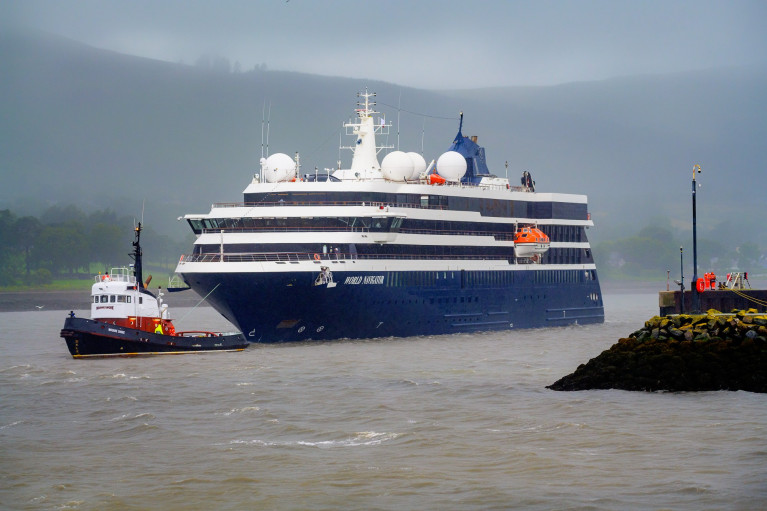Displaying items by tag: World Navigator
The first cruiseship since 2017 to visit Warrenpoint Harbour on Carlingford Lough was welcomed to the port today with the arrival of the World Navigator, writes Jehan Ashmore.
The cruiseship's inaugural call to the Co. Down port formed part of the 9,993 gross tonnage ship's 13-night London to Dublin cruise as Afloat previously reported.
The last caller to Warrenpoint took place in 2017 when Saga Pearl II headed up the Lough and this followed the historic first ever cruise call three years beforehand.
Despite the poor weather, passengers and crew of World Navigator received a warm welcome to the region where the Mountains of Mourne 'sweep down to the sea'.
The World Navigator built in Portugal was launched in August 2021 and offers luxury small expedition ship cruising from Florida-based Atlas Ocean Voyages. They operate the polar class ship with a capacity of 196 passengers and 127 crew.
The call of the World Navigator represents the first of three cruise ships due to dock in Warrenpoint this summer.
Tonight at 8pm the cruiseship departs on an overnight leg to Dublin Port.
As for the next caller to Warrenpoint, this will be The Azamara Pursuit which is scheduled to arrive on 5th August, followed on 18th August by the World Voyager.
Azamara Pursuit will be of particular local interest, as back in 2018 it was the largest ship of its kind to have a refit in Belfast; carried out by local firm MJM Marine.
























































